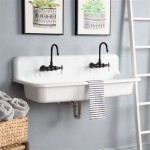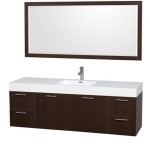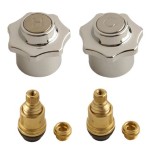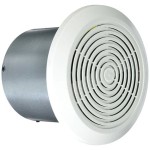Why Do I Go To The Bathroom So Much At Night?
Frequent nighttime urination, known medically as nocturia, can disrupt sleep and significantly impact quality of life. Understanding the underlying causes is crucial for finding effective solutions. This article explores several potential reasons for increased nighttime bathroom trips.
Fluid Intake
High fluid intake, especially close to bedtime, is a common culprit for nocturia. The body continues to process fluids throughout the night, leading to the need to urinate. Caffeinated and alcoholic beverages are particularly potent diuretics, increasing urine production and exacerbating the issue.
Age
As individuals age, bladder capacity typically decreases, leading to more frequent urination both day and night. The kidneys may also produce more urine overnight in older adults. These age-related changes contribute significantly to nocturia prevalence in older populations.
Underlying Medical Conditions
Several medical conditions can contribute to nocturia. These include: *
Urinary Tract Infections (UTIs):
Infections can irritate the bladder, causing a persistent urge to urinate, even when the bladder isn't full. *Diabetes:
High blood sugar levels can lead to increased thirst and fluid intake, resulting in greater urine output. *Bladder Prolapse:
This condition occurs when the bladder drops into the vagina, affecting bladder function and potentially causing nocturia. *Overactive Bladder (OAB):
Characterized by sudden, uncontrollable urges to urinate, OAB can lead to frequent trips to the bathroom, day and night. *Enlarged Prostate (Benign Prostatic Hyperplasia - BPH):
In men, an enlarged prostate can press on the urethra, obstructing urine flow and causing incomplete bladder emptying. This can lead to more frequent urination, including at night. *Kidney Stones:
Kidney stones can irritate the urinary tract and increase the need to urinate. *Kidney Failure:
Damaged kidneys may be less able to concentrate urine, resulting in increased urine volume, especially at night.Medications
Certain medications can act as diuretics, increasing urine production. These include: *
High blood pressure medications:
Some medications used to treat high blood pressure can have a diuretic effect. *Heart medications:
Certain heart medications can also increase urine output.Sleep Disorders
Conditions like obstructive sleep apnea can disrupt sleep patterns and contribute to nocturia. Individuals with sleep apnea may awaken more frequently during the night, increasing opportunities to notice the need to urinate.
Lifestyle Factors
Certain lifestyle choices can impact nighttime urination frequency. *
High salt intake:
Consuming large amounts of salt can lead to increased fluid retention and subsequent increased urine production. *Alcohol and caffeine consumption:
As mentioned earlier, these substances act as diuretics, increasing urine output.Pregnancy
During pregnancy, the growing uterus puts pressure on the bladder, reducing its capacity and leading to more frequent urination, both during the day and at night. Hormonal changes during pregnancy can also affect kidney function and increase urine production.
Neurological Conditions
Certain neurological conditions, such as multiple sclerosis or Parkinson's disease, can affect bladder control and contribute to nocturia.
Edema/Swelling in the Legs
Fluid accumulated in the legs during the day may be reabsorbed into the bloodstream when lying down at night. This increased fluid volume can lead to increased urine production and the need to urinate more frequently.
Anxiety and Stress
While not a direct cause, anxiety and stress can sometimes exacerbate underlying bladder issues or contribute to sleep disturbances, which can indirectly increase nighttime awakenings and bathroom visits.
Habitual Nocturia
In some cases, individuals may develop a habit of waking up to urinate even without a physiological need. This pattern can become ingrained and lead to persistent nocturia.
Diagnosing the Cause
Determining the underlying cause of nocturia requires a thorough evaluation. This often involves a medical history review, physical examination, and potentially further testing such as urinalysis, blood tests or urodynamic studies. Keeping a bladder diary, recording fluid intake and urination frequency, can also be helpful for diagnosis.

Frequent Causes What It Means How To Stop

Why You So Much At Night Frequent Causes

Nocturia Symptoms Diagnosis Treatment Urology Care Foundation

Reasons Why You Need To Go The Toilet At Night And When Be Worried Edinburgh Live
How To Stop At Night

Bathroom Breaks At Night 8 Nutrients For Your Bladder Health Life Extension

These 2 Vitamins To Stop Frequent At Night Nocturnal Polyuria Nocturia

Nocturia Frequent At Night Causes And More

Bathroom Breaks At Night 8 Nutrients For Your Bladder Health Life Extension
How To Stop At Night
See Also







